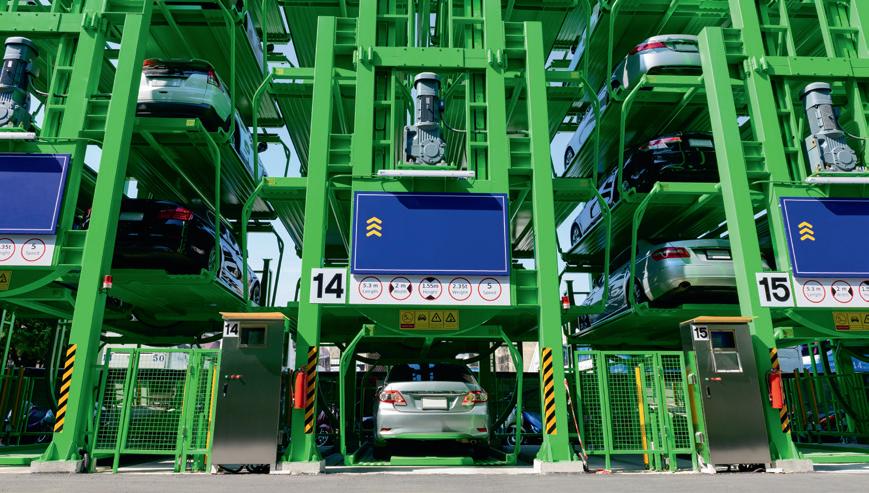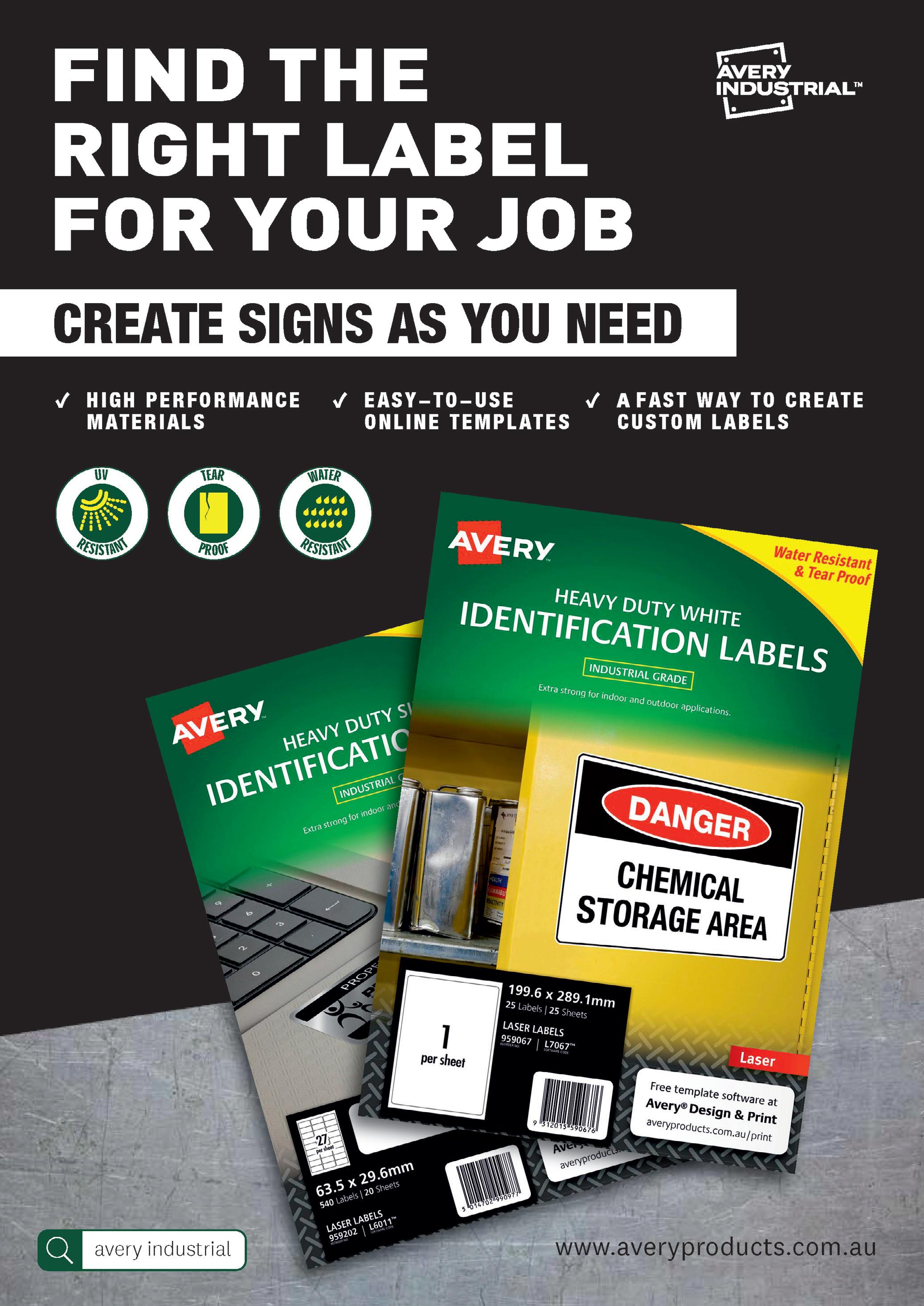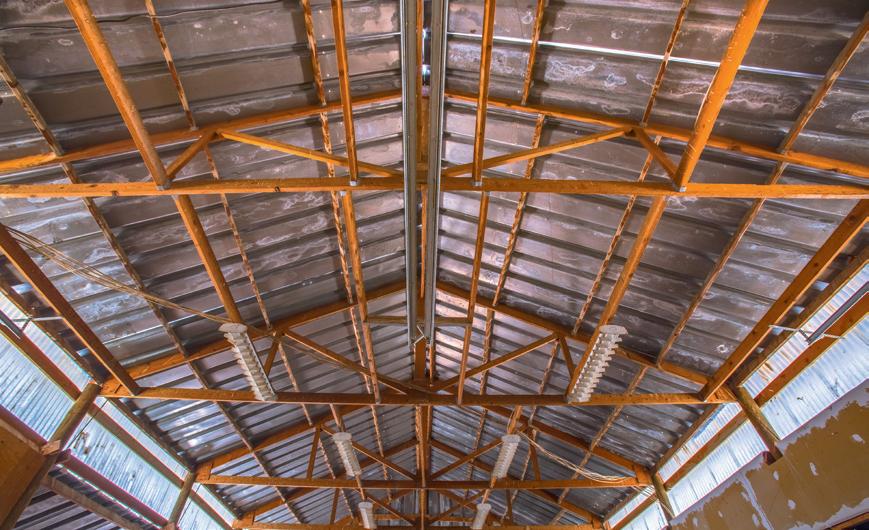
7 minute read
In the news
©stock.adobe.com/au/JRC_Stop Motion
SWA RELEASES COVID-19 VACCINE WHS GUIDELINES
Safe Work Australia has published guidance about work health and safety and the ongoing rollout of the COVID-19 vaccines. Per work health and safety (WHS) laws, employers have a duty to eliminate or, if that is not reasonably practicable, minimise the risk of exposure to COVID-19 in the workplace.
The new guidance provides information about rights and obligations under the model WHS laws and how they relate to COVID-19 vaccines, with specific information about vaccine work health and safety for employers, small businesses and workers in 37 different industries.
Safe Work Australia urges the community to remember that a safe and effective vaccine is only one part of keeping individuals safe and healthy.
To meet their WHS duties, employers must keep performing all other control measures that they have implemented to stop the spread of the virus, including physical distancing, good hygiene, regular cleaning and maintenance, and ensuring workers do not attend work if they are unwell. The guidance will be updated as more information becomes available.
©stock.adobe.com/au/brostock

QUEENSLAND UPDATES REGULATIONS FOR LOW DENSITY ASBESTOS BOARD
From 1 May 2021, low density asbestos fibre board (LDB) will be classed as a friable asbestos containing material and must only be removed by a class A licensed asbestos removalist. LDB is a lightly compressed board which looks similar to asbestos cement (AC) sheeting or plasterboard. It is different because it can be easily bent by hand or dented by soft pressure, and is sometimes referred to as asbestos insulating board.
Manufactured from the 1950s to the 1970s, LDB was used for wall and ceiling panels, thermal and acoustic insulation, fire protection and for general building work in industrial and commercial buildings, educational facilities and domestic premises. LDB was sold under product names such as ‘Asbestolux’ and ‘Duralux’; it is unlikely to be found in buildings constructed after 1982.
LDB contains up to 70% by volume of asbestos fibres and is generally composed of amosite (brown asbestos) and chrysotile (white asbestos) in a calcium silicate plaster. If in good condition and left undisturbed, LDB presents a low risk of releasing asbestos fibres and causing harm; however, as it is softer than AC sheeting, LDB can break up more easily when disturbed, thereby increasing the likelihood of exposure to airborne fibres.
Maintenance and service tasks such as sawing, cutting or drilling into LDB without appropriate controls can lead to a significant release of asbestos fibres. Some maintenance and service work on LDB is permitted, when done in accordance with LDB approved methods, approved by Workplace Health and Safety Queensland (WHSQ). This includes minor repairs and minor damage, painting undamaged LDB, drilling holes up to 30 mm in diameter into LDB, temporarily moving a low density asbestos fibre board ceiling tile, and installing or removing fixtures or fittings to LDB.
The maintenance and service work described in the LDB approved methods does not have to be performed by a class A licensed asbestos removalist; however, workers must be familiar with the LDB approved methods and be competent to perform the work.
Per the Work Health and Safety Regulation 2011 (The Regulation), all workers carrying out asbestos-related work must be trained in the identification and safe handling of, and suitable control measures for, asbestos and ACMs. Training in relation to maintenance and service work on LDB must include identifying LDB, donning and removing personal protective equipment, decontaminating equipment, personal decontamination, and the transport and disposal of asbestos waste.
CAR STACKER ELEVATOR ELECTROCUTION KILLS WORKER
A 21-year-old man died after being electrocuted while working alone in a West Melbourne building on Monday, 22 March.
It is believed that the young worker was undertaking electrical work on a car stacker elevator when the incident occurred.
The fatality brings the Victorian toll for workplace deaths to 10 for 2021.
WorkSafe Victoria is investigating.

©stock.adobe.com/au/Bernard MAURIN

IN THE NEWS

CONTRACTOR CHARGED OVER FATAL BRICK WALL COLLAPSE
WorkSafe Victoria has charged contractor Horsham Back-hoe Pty Ltd with two alleged breaches of the Occupational Health and Safety Act for failing to provide a safe working environment, following the death of a worker at a residential building site in Ballarat.
The 56-year-old man was crushed when a brick wall collapsed onto him during demolition work at the Mount Pleasant property in September 2019. The company’s alleged failure to establish and maintain an exclusion zone around live demolition areas breached section 21(2) (c) of the OHS Act.
WorkSafe Victoria also alleges that the company failed to provide the information, instruction and training needed to enable its workers to perform their work safely, thereby breaching section 21(2) (e) of the OHS Act.
The matter was addressed at a filing hearing at the Ballarat Magistrates’ Court on 19 February 2021.
©stock.adobe.com/au/elenavolf ©stock.adobe.com/au/Luca Flor

UNDERGROUND TRUCK CRASH SEES GOLDMINER FINED $150,000
Gold producer Northern Star Resources Ltd has been fined $150,000 in the Kalgoorlie Magistrates Court, after two workers were injured in a vehicle collision underground. The incident occurred at Northern Star’s Millennium mine in December 2017, when a worker lost control of a light truck while travelling downhill and steered into the mine wall to slow the vehicle. The worker and passenger suffered injuries from the collision.
At the time of the incident, the truck displayed the incorrect load capacity signage and was carrying a load that exceeded the safe operating maximum by more than 1.9 tonnes. The worker driving the truck had not completed the required training and assessment to operate the vehicle.
Andrew Chaplyn, Director Mines Safety at the Department of Mines, Industry Regulation and Safety, said the incident highlighted the importance of instruction, training and supervision for employees, to allow them to work in a safe manner. Chaplyn added that site procedures should include upskilling operators in calculating the safe working load limit if necessary.
“It’s up to mining operators to ensure workers have completed the required training and assessment for specific vehicles and sites. The incident also highlights the need for mining operators to conduct comprehensive risk assessments and ensure they have implemented the appropriate controls,” said Chaplyn.
Chaplyn also emphasised that all equipment and vehicles must display signage that shows the correct safe carrying weight.
On the day of the incident, the two workers were installing roof sheets on a shed they were constructing on a farm for agricultural purposes, without appropriate safety control measures in place. A strong wind lifted a sheet from the pack of roof sheets they were working near, causing them both to fall from a significant height.
It is alleged that Jake Williams fell approximately nine metres from the apex of the roof, suffering fatal injuries, while Fraser Pinchin fell seven metres from the roof’s edge near the gutter line, suffering multiple fractures of the pelvis, hip, wrist and ribs.
SHED COMPANY FACING CHARGES OVER WORKER FALL DEATH
WorkSafe WA has commenced prosecution action against a shed building company and its director. MT Sheds (WA) Pty Ltd and company director Mark Thomas Withers face a total of seven separate charges including charges relating to the death of worker Jake Williams and serious injuries to another worker, Fraser Pinchin, in 2020.
The charges relate to an incident which led to the death of one worker, with another worker sustaining serious injuries. The charges include one alleging circumstances of gross negligence against MT Sheds (for which a maximum penalty of a $2.7 million fine applies) and a charge against Mark Withers that alleges the company’s gross negligence offence occurred with his consent or was attributable to his neglect (for which a maximum penalty of a $550,000 fine and five years’ imprisonment applies).
Other charges include allegations that neither Mark Withers nor either of the two employees involved in the incident held high risk work licences for the work they were performing, and that MT Sheds allowed Jake Williams to perform construction work without holding a Construction Induction Training Certification (“white card”).

©stock.adobe.com/au/Jason









